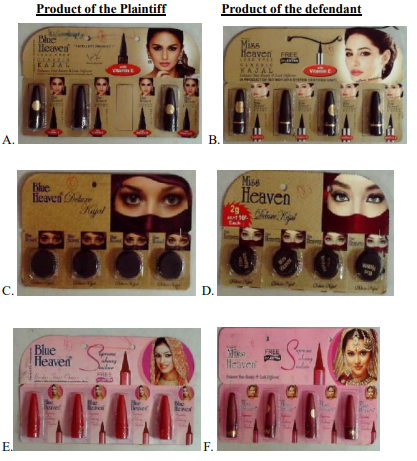Tech Plus Media Private Limited v. Jyoti Janda
Tech Plus Media Private Limited v. Jyoti Janda
2014 (60) PTC 121 (Del)
Brief Facts:
- Plaintiff was a leading industry publication house in the sphere of Information Technology having a print media publication called ‘IT Price Va’r and online news portal called ‘ITVARNEWS.NET’ dedicated to Information Technology channels and professionals.
- Defendants were ex-employees of the Plaintiff who had developed a new website known as thenewsxpress.com.
- Defendants made this website while they were still employed by the Plaintiff.
- In third week of October, 2009, Plaintiff observed the said website and immediately installed surveillance devices in its premises which were objected by the Defendants. The Defendants resigned and were relieved of service on 31st October, 2009.
- Subsequently, Plaintiff found that and the website provided similar services to that of the Plaintiff at a 50% discounted rate than the Plaintiff. Upon investigation it was found by that the website was run by the Defendants.
- The Plaintiff filed the present, inter alia, alleging violation of trade secrets in Plaintiff’s confidential information and databases and also infringement of Copyright in the same.
Plaintiff’s Contentions:
- Plaintiff has developed detailed confidential databases for existing clients, customers and target audience over a period of nine years. These databases contain information that is Plaintiff’s Copyright as they represent the Plaintiff’s original and inventive thoughts and the original skill, thought process and imagination that Plaintiff has shown to develop the same.
- Defendants had copied the confidential information and databases constituting the trade secrets of the Plaintiff on pen drive and sent them through e-mail to their personal e-mail IDs.
- Data of the Plaintiff in which copyright is claimed comprises of prospective customers/clients and their particulars, and attention in this regard is invited to Section 2(o) of the Copyright Act, 1957.
Defendants’ Contentions:
- Information/databases are not trade secrets as they are openly available in the market
- Defendants had not signed any confidentiality agreement with Plaintiff.
- Plaint nowhere discloses as to who is the author of the alleged copyright.
- Plaintiff a juristic person, cannot be the owner of the copyright in the databases alleged.
Court’s Observations:
- Plaintiff has repeatedly referred to databases but has not specified as to what those databases pertain to and what the contribution of the Plaintiff is thereto. From what has been argued, the said databases are nothing but a collection of the e-mail addresses of the visitors to the website/news portal of the Plaintiff. The Plaintiff cannot be said to be the author or contributor to the same.
- Plaintiff cannot claim Copyright in collection of the names and addresses of the visitors to the news portal of the Plaintiff or their comments within the meaning of Section 14 of the Copyright Act, 1957.
- Plaintiff is a juristic person and is incapable of being the author. However Plaintiff can be the owner of a copyright under an agreement. For the Plaintiff to maintain the present suit, it is incumbent to disclose the said work and the author thereof and the agreement under which the author has made the Plaintiff the owner of the copyright. The Plaintiff has not done so.
- In American Express Bank Ltd. v. Priya Puri (2006) it was held that:
- In garb of confidentiality, monopoly cannot be exercised over the customers just because the Plaintiff maintains a written record of the same;
- A competitor cannot be restrained from approaching those customers; and
- Details of Customers are not trade secrets nor property.
- Burlington Home Shopping Pvt. Ltd. v. Rajnish Chibber[1] and Diljeet Titus v. Mr. Alfred A. Adebare[2] will not apply as they are prior to Eastern Book Company v. D.B. Modak[3] wherein standard for claiming Copyright is skill and judgment of the author and not merely labour and capital. It was further clarified that the skill and judgment required to produce the work must not be so trivial that it could be characterized as a purely mechanical exercise.
- In Emergent Genetics India Pvt. Ltd. v. Shailendra Shivam[4] it was observed that:
- No copyright should be granted in limited ways of expressions of an idea. Otherwise, no one can practice the idea or procedure expressed without being guilty of copyright infringement;
- Pleadings of the nature and quality of information which is confidential are crucial; and
- Granting injunctions under the umbrella of trade secret or confidential information has the propensity to restrict rights under Article 19 (1) (g) and 21.
Finding the suit to be bereft of material pleadings, the Hon’ble Court dismissed the same.
[1] 61 (1996) DLT 6
[2] 130 (2006) DLT 330
[3] (2008) 1 SCC 1
[4] 2011 (47) PTC 494
Co-author: Ms. Pragati Pachisia, JCCLC

